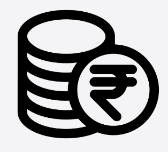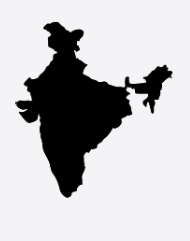INVC Vaccination packages are thoughtfully crafted by our Vaccine experts to meet the Vaccination needs of babies. Our Vaccination package recommendations are based on guidelines from global and local Health expert authorities and include Vaccines from reputed brands that have strong scientific evidence and years of robust research.

















| Age | Vaccine | Dose | Disease prevented |
|---|---|---|---|
| 1.5 Month | DTP, Hib, Hep-B, IPV | 1 | Diphtheria, Tetanus, Pertussis; Haemophilus influenza type B, Hepatitis-B & Polio |
| PCV | Pneumococcal disease | ||
| RVV | Rotavirus | ||
| 2 | 2.5 Month | DTP, Hib, Hep-B, IPV | Diphtheria, Tetanus, Pertussis; Haemophilus influenza type B, Hepatitis-B & Polio |
| PCV | Pneumococcal disease | ||
| RVV | Rotavirus | ||
| 3 | 3.5 Month | DTP, Hib, Hep-B, IPV | Diphtheria, Tetanus, Pertussis; Haemophilus influenza type B, Hepatitis-B & Polio |
| PCV | Pneumococcal disease | ||
| RVV | Rotavirus | ||
| 4 | 6th & 7th Month | Influenza | Influenza |
| 5 | 9th Month | MMR | Measles, Mumps & Rubella |
| TCV | Typhoid |
When babies are born, their immune systems are not fully developed, making them vulnerable to infections. Babies need vaccinations to protect them from serious and potentially life-threatening diseases. By vaccinating babies, we can protect them from a variety of infectious diseases and reduce their risk of hospitalization and even developing serious complications from these diseases. Vaccines also help to protect the wider community by reducing the spread of infectious diseases.
Yes, vaccines are safe for infants. They undergo rigorous testing and approval processes before being licensed for use. Every year crores of children around the world receive essential vaccines to protect them from deadly diseases. Vaccines are generally well tolerated and the benefits of vaccination far outweigh the risks of side effects associated with vaccination.
Some common side effects of vaccines include fever, pain, and redness or swelling at the injection site. These side effects are usually mild and go away on their own within a few days.
No, there is no scientific evidence to support the claim that vaccines cause autism. Multiple studies have found no link between vaccination and autism.
Delaying or skipping vaccines for infants can leave them vulnerable to serious diseases. Children do not receive any known benefits from following schedules that delay or skip vaccines. It is important to follow the recommended vaccination schedule to ensure the best protection for your new-born.
Also, delaying or skipping out vaccine doses leaves your child unprotected during the time when they need protection the most. For example, diseases such as Hib or pneumococcal, meningococcal or Hib occurs commonly in the first 2 years of a baby’s life and can get very serious when babies get them.
Most vaccines have a flexibility in schedule to accommodate the best protection possible against the disease. In case if you have missed out on any vaccine, consult your Paediatrician or reach out to an INVC Vaccine expert for guidance on Catch-up Vaccination. It is important to catch up on missed vaccine doses as soon as possible to ensure that your child is fully protected against preventable diseases.
A vaccination record is generally provided by your healthcare provider. Ensure to get the record updated after each completed vaccination. Please follow the due date mentioned on your card/file for subsequent timely vaccinations. Alternately, you can connect with INVC Vaccine expert to get a digital Vaccination record and receive reminders for your due vaccinations.
All vaccines that are recommended by health expert authorities such as Indian Academy of Paediatrics (IAP) and Indian Medical Association (IMA) are important and play a crucial role in protecting against serious and potentially deadly diseases. While incidence of a few diseases may have reduced over time, it is so because of high rates of vaccination in the past. If we stopped vaccinating, the few cases that we have in India could rise very quickly.
Also, there are a few vaccine-preventable diseases that are not common in India but are common in other parts of the world. With rising globalization, even if you do not travel internationally, you could come into contact with international travellers anywhere in your community. Children who don’t receive all vaccinations and are exposed to a disease can become seriously sick and even spread it amongst others members in the family.
It is generally safe to vaccinate a baby who has a mild illness, such as a cold. However, if your baby has a serious illness or fever, it may be best to delay vaccination until they feel better. For personal medical advice, consult your Paediatrician on when it is safe to vaccinate your baby.
Currently, vaccination is the most scientifically-proven and effective method of preventing infectious diseases and is recommended by healthcare authorities worldwide. Relying solely on alternative approaches like proper nutrition, good hygiene practices and a healthy lifestyle, instead of vaccination can put your child at risk of serious diseases. Breastfeeding offers temporary immunity against some minor infections like colds, but it is not an effective means of protecting the child from specific diseases.
If you have concerns about vaccination or would like more information, do consult your Paediatrician or feel free to connect with an INVC Vaccine expert to make an informed decision.
While both natural and vaccine-induced immunity can provide protection against diseases, vaccines are generally considered to be safer and more reliable than natural immunity. Immunity developed from a natural disease can lead to serious complications including hospitalization, paralysis, sepsis, heart failure or even death from the disease. Vaccines are carefully tested and regulated to ensure safety and effectiveness. Getting vaccinated to develop immunity is a wise decision.
No, vaccines cannot cause the disease they are designed to prevent. Most vaccines contain inactivated or weakened viruses or bacteria that cannot cause disease. Some vaccines contain only pieces of a virus or bacteria, or a protein from the virus or bacteria. These components cannot cause disease.
The length of time that vaccine protection lasts varies depending on the vaccine and the disease. Some vaccines provide long-lasting protection, while others require booster shots to maintain immunity.
Not vaccinating your baby puts them at risk of contracting serious and potentially life-threatening diseases. It also puts other children and adults in the community at risk, as unvaccinated individuals can spread diseases to others who may not be able to receive vaccines for medical reasons.
Vaccines are one of the most cost-effective ways to prevent disease and promote good health. While vaccines may require an initial investment, the benefits of vaccination can far outweigh the costs. The treatment cost for a vaccine-preventable disease can be much higher than the cost of vaccination. Health economics data suggests that, every rupee invested in vaccination saves 44 rupees of societal costs.
Vaccines can save lives, prevent disability, and reduce healthcare costs associated with treating vaccine-preventable diseases. In some cases, vaccines can even help to eliminate diseases altogether, as seen with the successful eradication of smallpox.
The Government of India's National immunization program (NIP) is a standard schedule, focusing on providing the most essential vaccines and cover a large population, free of cost. The NIP program is designed considering the available health and economic resources to prevent mortality due to the deadliest diseases.
However, there are other diseases as well which can lead to significant morbidity in children and are preventable through vaccination but currently not included in the NIP. Indian Academy of Paediatrics (IAP) has a comprehensive vaccination schedule designed considering the prevalence of specific diseases in India and the effectiveness of vaccines in preventing them. IAP vaccination schedule is updated periodically based on the latest scientific research and recommendations from international organizations such as the World Health Organization (WHO). Parents should consult with their Paediatrician to determine the appropriate vaccination schedule for their child, taking into account their child's individual health needs and risk factors.
Enter your Information and allow us to get back to you for a delightful vaccination experience.
